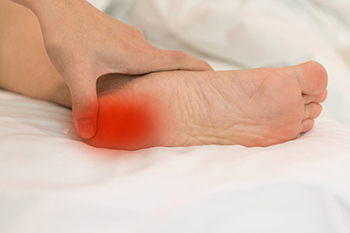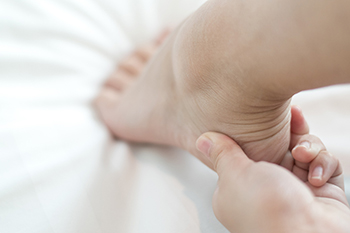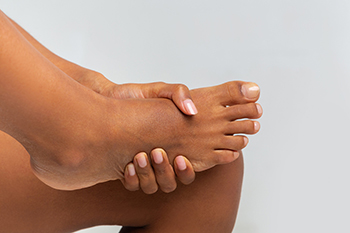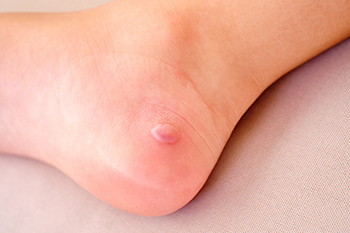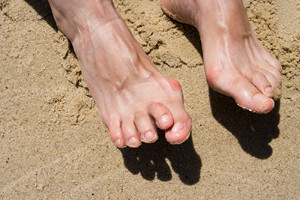
Overlapping toes can appear at birth or develop later in life. In newborns, the toes may overlap due to positioning in the womb or inherited foot structure. Gentle stretching and taping techniques are often used to encourage proper alignment during infancy. In many cases, the condition improves as the child grows and becomes more active. For adults, overlapping toes frequently result from wearing tight or ill-fitting shoes, arthritis, or long-term foot deformities such as bunions or hammertoes. Discomfort, corns, and difficulty finding comfortable footwear are common complaints. Non-surgical treatments may include wearing wider shoes, using toe spacers, and applying padding to relieve pressure. If pain persists or the overlap interferes with walking, surgical correction may be recommended to realign the toes and restore comfort. Whether the condition affects a newborn or an adult, it is suggested that you see a podiatrist for a proper diagnosis and appropriate treatment plan.
Hammertoe
Hammertoes can be a painful condition to live with. For more information, contact one of our doctors from New England Foot & Ankle . Our doctors will answer any of your foot- and ankle-related questions.
Hammertoe is a foot deformity that affects the joints of the second, third, fourth, or fifth toes of your feet. It is a painful foot condition in which these toes curl and arch up, which can often lead to pain when wearing footwear.
Symptoms
- Pain in the affected toes
- Development of corns or calluses due to friction
- Inflammation
- Redness
- Contracture of the toes
Causes
Genetics – People who are genetically predisposed to hammertoe are often more susceptible
Arthritis – Because arthritis affects the joints in your toes, further deformities stemming from arthritis can occur
Trauma – Direct trauma to the toes could potentially lead to hammertoe
Ill-fitting shoes – Undue pressure on the front of the toes from ill-fitting shoes can potentially lead to the development of hammertoe
Treatment
Orthotics – Custom made inserts can be used to help relieve pressure placed on the toes and therefore relieve some of the pain associated with it
Medications – Oral medications such as anti-inflammatories or NSAIDs could be used to treat the pain and inflammation hammertoes causes. Injections of corticosteroids are also sometimes used
Surgery – In more severe cases where the hammertoes have become more rigid, foot surgery is a potential option
If you have any questions please contact our offices located in Wakefield, MA, Nashua and Derry, NH . We offer the newest diagnostic and treatment technologies for all your foot and ankle needs.
